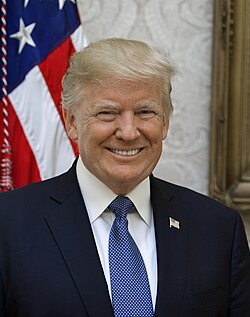NATIONAL NEWS

TRUMP’S THREATS EXPOSE NIGERIA’S WEAK FOREIGN POLICY, DEEP DIVISIONS — CDD ANALYST WARNS
A research analyst at the Centre for Democracy and Development (CDD), Dengiyefa Angalapu, has warned that U.S. President Donald Trump’s recent threat of military action against terrorists in Nigeria could open the country to foreign interference and further worsen insecurity.
Speaking in an exclusive interview with DAILY POST, Angalapu explained that Trump’s remarks have sparked widespread debate among Nigerians, but deeper issues need to be understood to grasp why they resonate with certain groups.
Nigeria’s Complex Conflict Landscape
According to the analyst, Nigeria’s insecurity problem is complicated by its multi-religious and multi-ethnic nature, which shapes how communities interpret violence.
He pointed out that in the North-East, extremist groups like Boko Haram and ISWAP are driven by jihadist ideologies aimed at establishing an Islamic state. However, in the North-West and North-Central zones, the situation is a mix of ideological and criminal motivations.
“In the North-East, Boko Haram opposes western influence and education, but at their core, they are jihadist groups seeking an Islamic state,” he explained.
“In the North-Central, groups like Ansaru are also ideologically driven, while bandits are more criminal and economic in nature.”
He noted that because many perpetrators claim to be Muslims, some Christian communities interpret attacks as religiously motivated—even when they are not.
Religious Mistrust Fuelling Division
Angalapu said Boko Haram’s history of attacking churches and Christian communities has deepened mistrust.
“There is evidence that Boko Haram, JAS, and ISWAP have targeted Christians to advance the idea of an Islamic state,” he said.
“But Muslims also point out that terrorists have killed Muslims too.”
This mistrust, he said, has become a major obstacle in defeating terrorism.
“Instead of uniting against a common enemy, Nigerians are arguing over who is dying more. This polarization weakens our fight.”
Foreign Interference Now a Real Risk
Angalapu warned that Nigeria’s internal divisions and weak coordination in counterterrorism efforts create an opening for foreign powers.
“The U.S. has already issued threats. Russia is active in Mali, Burkina Faso, and Niger. Their rivalry could spill into Nigeria.”
He explained that if the U.S. intervenes militarily, Russia may view it as an attempt to penetrate the Sahel through Nigeria.
Weak Foreign Policy Making Nigeria Vulnerable
The analyst also blamed Nigeria’s weak foreign policy stance, noting that the country has not had ambassadors in key nations—including the U.S.—for nearly two years.
“Since President Tinubu took office, ambassadors have not been appointed. That creates a vacuum. The U.S. hears rumors instead of official communication.”
According to him, recent political decisions have also strained U.S.–Nigeria relations—including Nigeria joining BRICS, a bloc aligned with China and Russia, and rejecting America’s deportation agreement.
“That rejection was a blow to U.S. interests. Retaliation is not unexpected.”
Rushed Counterterrorism Response Could Backfire
Angalapu said Trump’s statement has created panic within Nigeria’s security systems.
“It has disorganized us. We are now rushing to show results, and that causes tension.”
He warned that rushing operations could lead to mistaken airstrikes, especially because terrorists often use kidnapped civilians as human shields.
“If you want to kill 10 terrorists, should 20 innocent people die in the process? These are real dilemmas for the military.”
“The situation is complex, but Nigeria must stay coordinated”
He concluded by urging the government to maintain calm, improve coordination, and strengthen foreign policy engagement.
“It’s a very complex situation. I hope Nigeria gets out of it soon.”
"This represents a significant development in our ongoing coverage of current events."— Editorial Board









